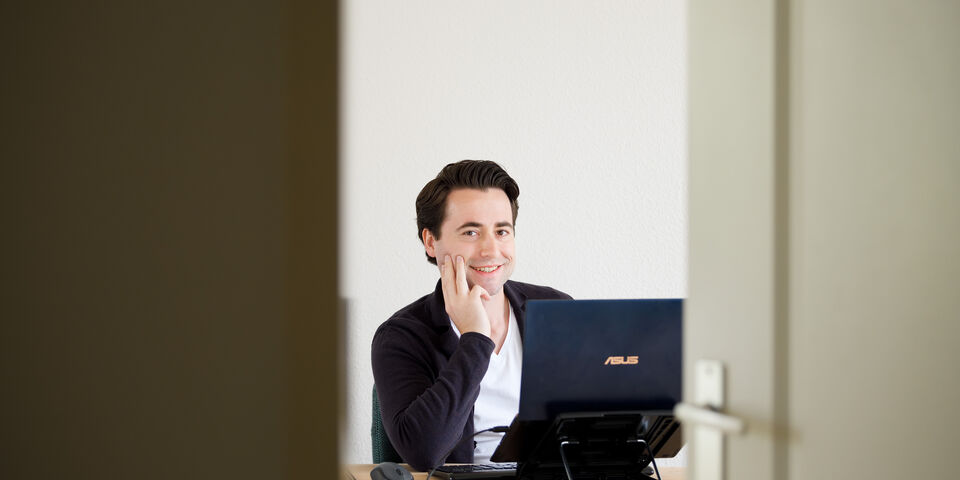Blackboard chauvinism
While all eyes are on the conga lines snaking across the campus to the sounds of the Snollebollekes carnival band, an illusory transformation is taking place at TU/e. Unseen by employees, students and campus rabbits, the blackboards in the Auditorium are being replaced.
That's nothing special, you might say, just more of the same. But hold on a moment. There is something striking here, namely the lack of real change – this is blackboard chauvinism at its very best. Six months ago a professor was almost buried under a blackboard, so you'd think the time would be ripe to try something new.
But no, it seems that the teaching element of the TU/e community is not yet ready to take this step. Evidently, people are keen to go on chalking colorfully onto a dark surface for years if not decades to come. What's more, if the Wikipedia page on ‘blackboards’ is to be believed, the blackboard (vs the whiteboard) has many advantages: it's easier to draw broken lines with chalk, it doesn't dry out, is odorless, and so on. All advantages that, by the way, can also be found on a (Dutch) webpage entitled “THE ADVANTAGES AND DISADVANTAGES OF THE BLACKBOARD”, a page that concludes with the words, “So that covers the topic of the advantages and disadvantages of the blackboard.” This internet etiquette, so typically 1990s, is representative of the technical sophistication of the blackboard.
Why is the university lagging so far behind in this respect? Today's high schools are full of smart boards and interactive screens. Why not TU/e? After all, we are a university of technology (NB: pronounce ‘technology’ as if the projector in Auditorium 9 is broken and you are commenting on the irony of such a thing happening at a “university of technology”).
Laziness, it seems, rules the day. The type of mentality that believes “If it ain’t broken, don’t fix it”. Our academic staff has no time to learn new tricks. Lecturers either have slides for all their lectures and are good to go for the next twenty-plus years (or a ‘deck’ with 237 slides for every situation), or they know all the example questions by heart and can get them up on the blackboard as easy as pie. These are the methods the current generation of lecturers has grown up with; they earned their stripes this way, so the new generation should be able to do so too. Just as my driving instructor once said in his Brabant dialect: “Listen Alain, I've got my driver's license, nie yie, so if yie drive like me, yie can pass!”
It's not the lack of innovation that I find particularly problematic. The dust clouds, the pastel-colored stains on your shirt – there's touch of romance here, don't you think? But let's not cite that as the reason we are keeping the boards. In truth, we simply aren't interested in learning something new. Fine. In fifteen years' time when we're no doubt surrounded by smart boards, the new generation simply won't know any better and will be leading their lives blissfully unaware of floppy disks, DVDs and blackboards.


Discussion